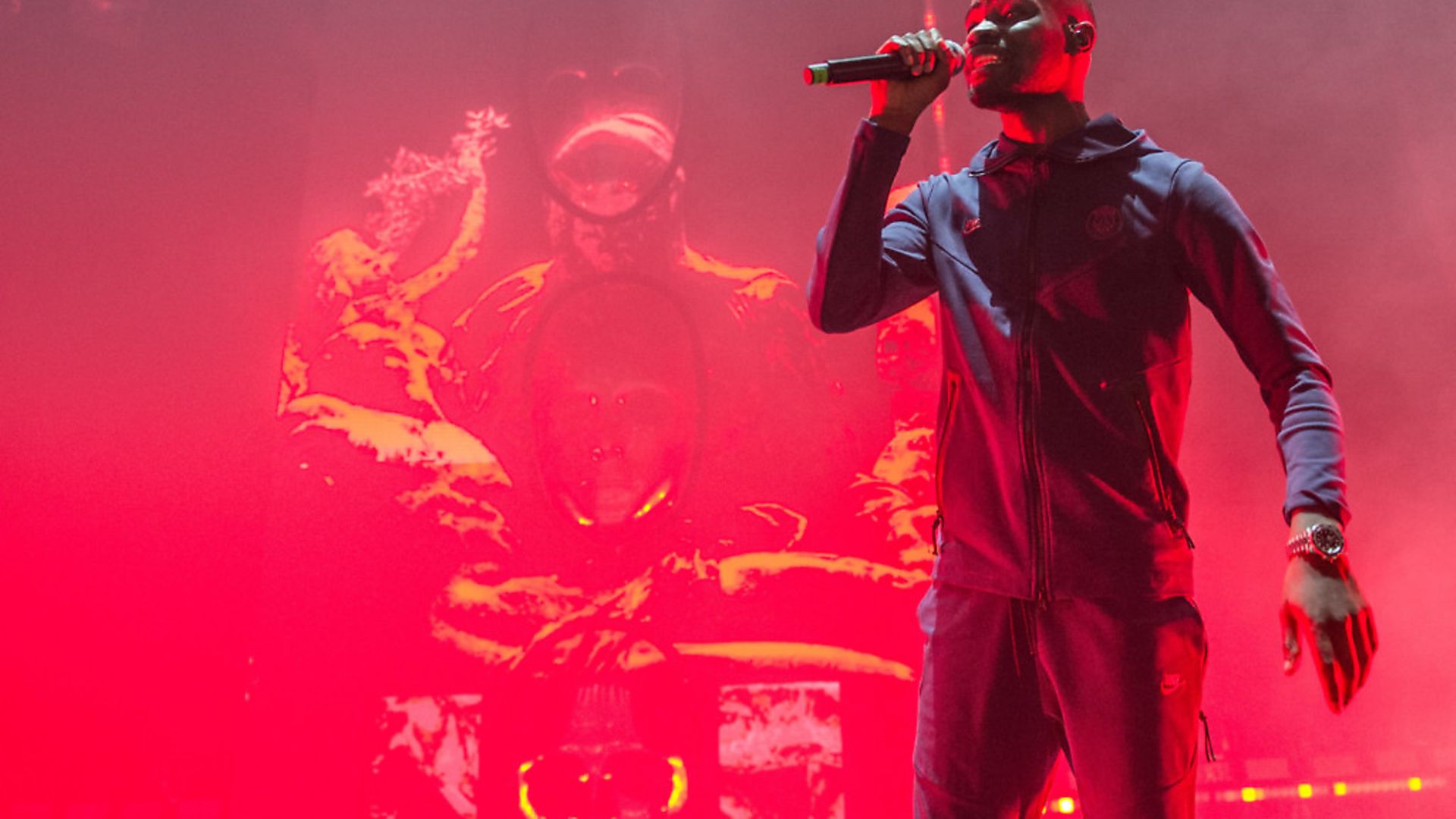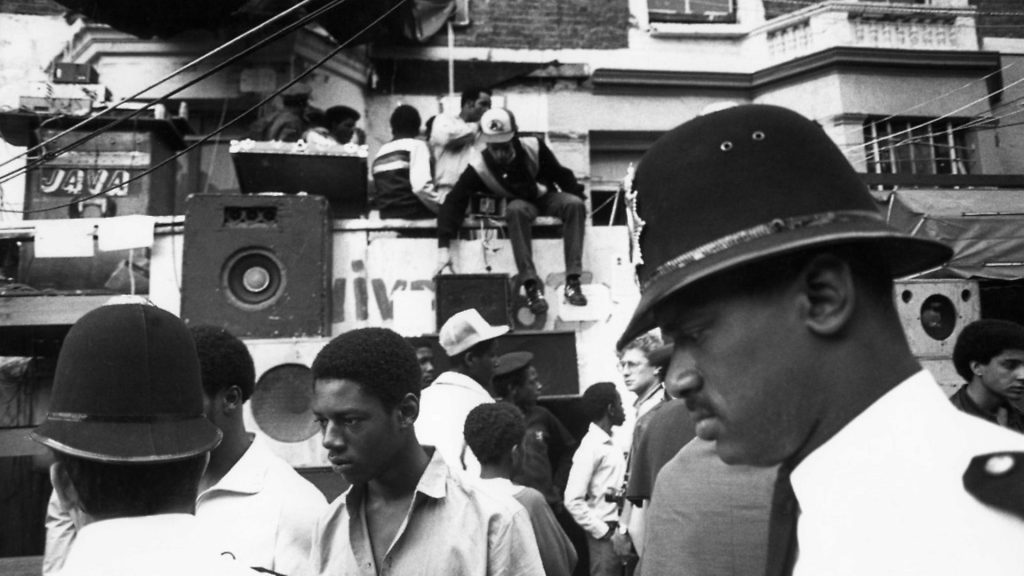
Leroy Logan has been both a senior policeman and a serious musician. For decades, he’s seen the police in London misunderstand and criminalise black music.

I was a policeman for 30 years, but I’ve been a musician much longer. I started playing the trumpet when I was 11 years old and I got very good at it. I was lucky enough to play and record with some great musicians back in the day. So I love music. It even influenced my thinking about policing. Even now, Junior Murvin’s Police and Thieves is my mobile ring tone, and I played it on my trumpet at my retirement reception in 2013. Badly, I might add.
As a musician and a policeman, I’ve watched as the police have consistently misunderstood and stigmatised black music and the people who make it. When I hear the complaints about Drill music, I hear echoes of the way things have always been.
I’m always hearing from my ex colleagues in the Metropolitan Police that Drill music causes violence and anyone associated with it should be treated with suspicion; effectively seen as crime suspects based on assumptions, stereotyping and racial profiling. It is the same way I saw reggae music viewed by the ill-informed authority figures of the 70s.
Back in the 1970s and 1980s, reggae music venues, from record shops and clubs to house parties, attracted disproportionate attention from the police that ended with venues being closed and events shut down. Invariably it led to large numbers of black people being arrested and sent to the courts. Even in my first few years as a policeman, I avoided going to these events or playing at them, out of fear of what the police might do. I didn’t want to run the risk of being arrested and charged, especially when police were acting on falsehoods rooted in institutional racism.
I had this entrenched in me at an earlier age through traumatic ‘stop and search’ experiences with police during my early-to-mid teens. In front of my school, in uniform, with my trumpet case in my hand, I’d be leaving after-school band practice. On several occasions, I was stopped by the cops on suspicion that I was carrying something illegal in my trumpet case or school satchel. I never saw or heard my white band members going through a similar experience. It was an early lesson that my skin colour made me a target for police even when I was doing the most normal and harmless activities a schoolboy could do.
Fast forward 20 or 30 years to the beginning of the millennium and the emergence of Grime, where I saw the Metropolitan Police resurrecting the racial profiling playbook by falsely claiming that the music caused violence. The police used the same draconian powers to racially profile a new generation of black youngsters too, and shut down staged events or closed them down beforehand. All this was done on the ill-conceived basis that the DJs and other performers were heavily connected to gangs and the violence associated with them. Essentially this was down to a flawed criminal intelligence system that has too many assumptions and biases, and not enough checks and balances or independent oversight.
If the police intelligence system was fit for purpose it would recognise that most of the music and narrative associated with Grime was an expression of the reality of the people who made it – from the cradle to the grave – resulting from the growing level of street violence associated with crack cocaine distribution, the inherent artificial barriers of postcodes and the predator nature associated with this form of lifestyle.
It’s not straightforward because there were one or two exceptions; Grime groups who were heavily associated with crime gangs – groups like North Star – which had a long track record of street violence involving firearms and inter-gang feuds. This was glorified as ‘Gangster Glamour’ through their videos on the emerging social media platforms, and it replicated a similar phenomenon spreading across America with the East and West Coast rivalry headed up by Biggie Smalls and Tupac. We know how that played out.
But even when a Grime music group is linked with some form of violence there has been no empirical evidence to suggest music causes violence. It is extremely rare to hear about reasonable and balanced people listening to music which highlights violence, and then going out to enact it.
If there is violence, there are always underlying issues; at most the music is a co-factor that comes to the fore itself when there is long-term urban deprivation and social exclusion.
I had direct observations of this, not only during the last half of my 30-year career in the police but also in my secondary role as founder member and past chair of the Black Police Association. In particular I got involved through my behind-the-scenes work with So Solid Crew. At the time they were the most successful Grime group through their smash hit 21 Seconds in 2001.
At the height of their fame I worked with their leading light, Megaman, who I saw as a very astute businessman trying his hardest to keep his crew together as a musical success. He wanted to ensure their music spoke of their reality in the school of hard knocks, in an urban deprived neighbourhood that was also a crime hotspot. But the odds were stacked against him.
The bigger So Solid Crew became, the more the pressure from the streets intensified. Some of that was down to envy, some was competitiveness, and some of it was a viciousness bred by activities they’d been involved with in the past. They were between a rock and a hard place, because I also saw how they were pigeon-holed and racially profiled, by police and other public services, as a group of violent young black people who had to be stopped.
Eventually the police were instrumental in preventing some of So Solid Crew from securing a livelihood in music and they had no alternative but to resort to alternative means of living. At times that included some form of criminality which did major reputational damage, and they never regained their musical status.
There’s a through-line from Grime to Drill music. Drill is commonly known as the child of Grime, and it has inherited the same overbearing treatment that other ‘Music of Black Origins’ has suffered. Over the decades it’s been impossible for me to ignore the stark contrast between the way the police have approached black and white anti-establishment music. Some heavy metal over the decades has had a strong narrative of violence but it has never had the same trouble with the law that Grime and Drill have had to contend with.
In the end, there’s only one solution. The listener – especially if that’s the police – has to have a certain amount of cultural awareness and competence. But in institutionally racist organisations like the police those skills are sadly lacking. So it is not surprising they fall into the trap of racial profiling in the way they approach and police Drill music.
By assuming that Drill causes violence the police set off a vicious cycle. They demonise its exponents; prevent Drill events being run; and close them down without good reason. This in turn forces the music underground, gives birth to illegal street and rave parties, and fuels the fire of anger and frustration, and the anti-establishment narrative of Drill.
It’s a pattern I’ve seen with depressing regularity throughout my life and we have to continue to speak up against it. Truth to power.
Leroy Logan’s autobiography Closing Ranks is due to be published on September 17.
This article was originally published by Tortoise, which is committed to open, inclusive journalism.









